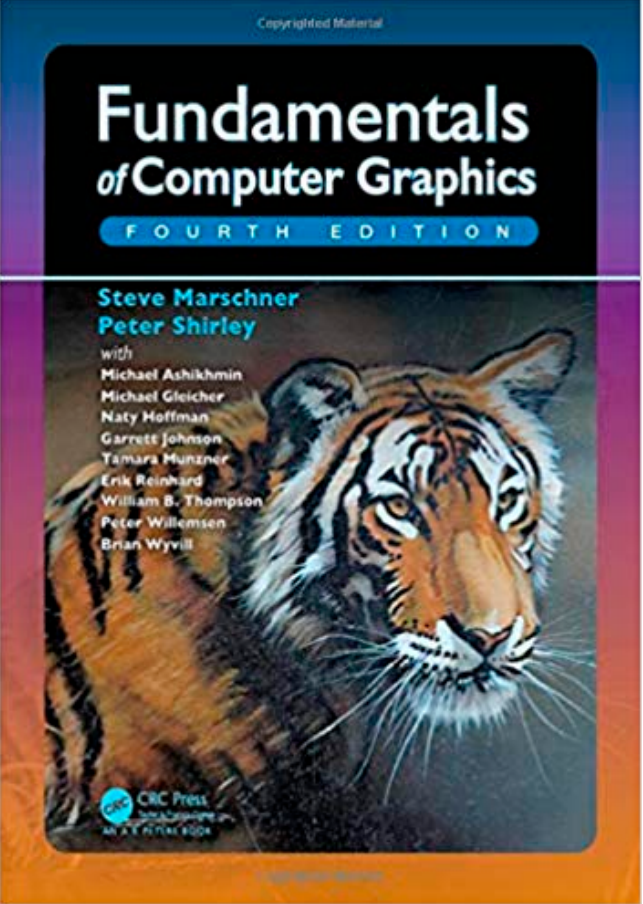GAMES101-01 Introduction
what
The use of computers to synthesize and manipulate visual information.
it applied in vidio Games, Movies, Animations, cad/cam/cae Desigh, visualization, virtual reality, digital lllustration, simulation, gui, Typography.etc
why
Fundamental Intellectual Challenges
- Creates and interacts with realistic virtual world
- Requires understanding of all aspects of physical world
- New computing methods, displays, technologies
Technical Challenges
- Math of (perspective) projections, curves, surfaces
- Physics of lighting and shading
- Representing / operating shapes in 3D
- Animation / simulation
Topics
Rasterization
- Project geometry primitives (3D triangles / polygons) onto the screen
- Break projected primitives into fragments (pixels)
- Gold standard in Video Games (Real-time Applications)
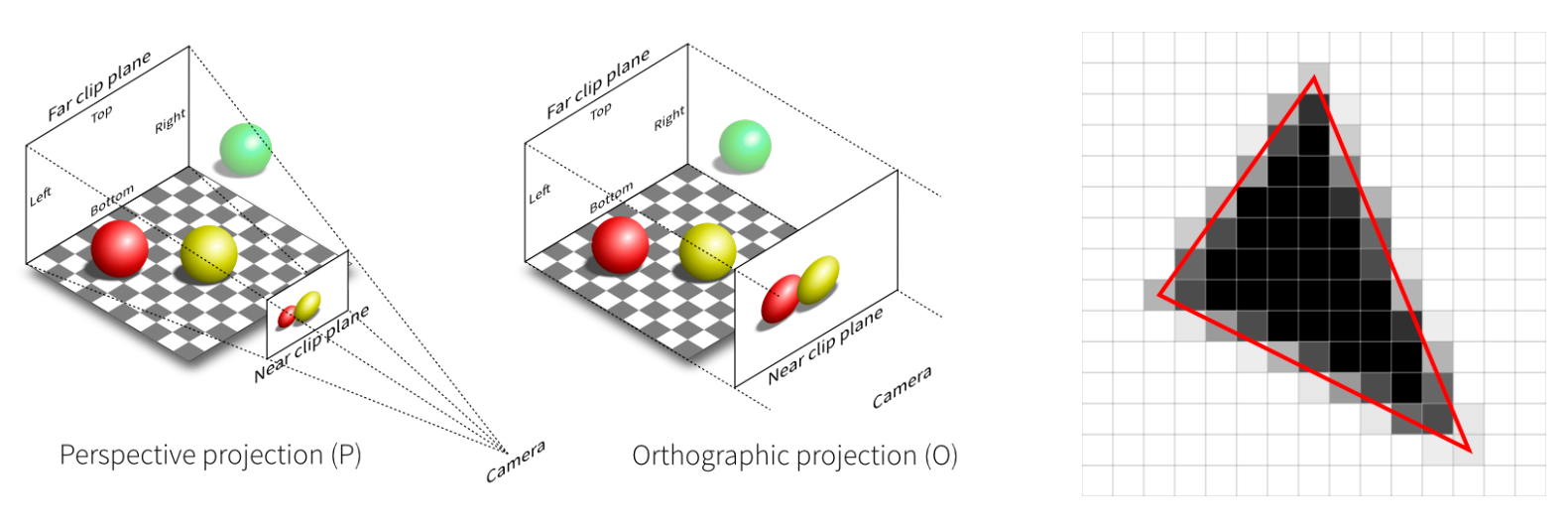
Curves and Meshes
How to represent geometry in Computer Graphics
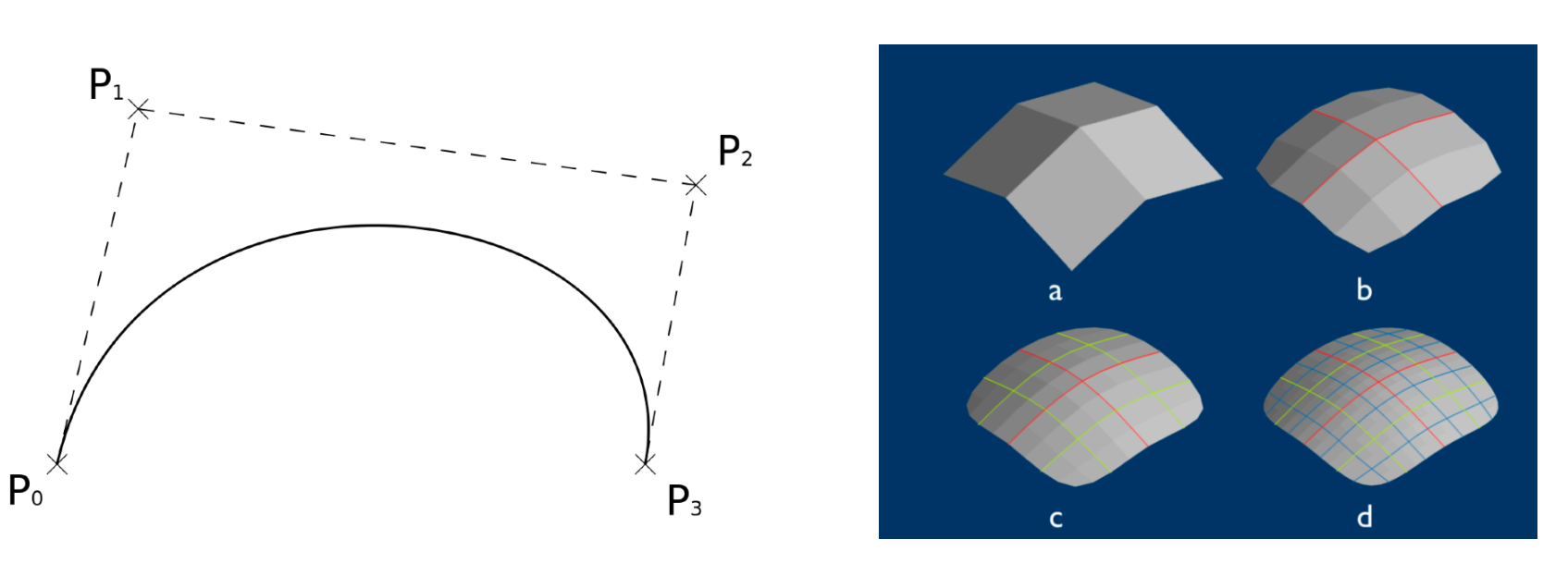
Ray Tracing
- Shoot rays from the camera though each pixel
- Calculate intersection and shading
- Continue to bounce the rays till they hit light sources
- Gold standard in Animations / Movies (Offline Applications)
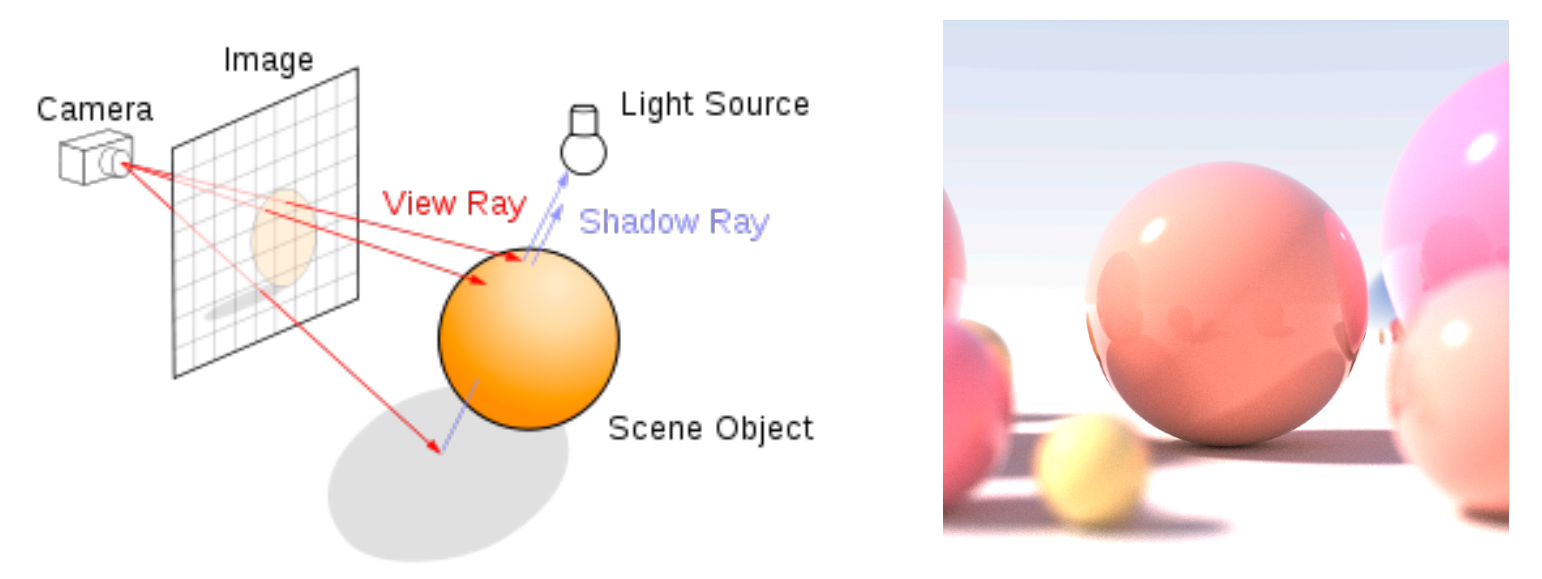
Animation/Simulation
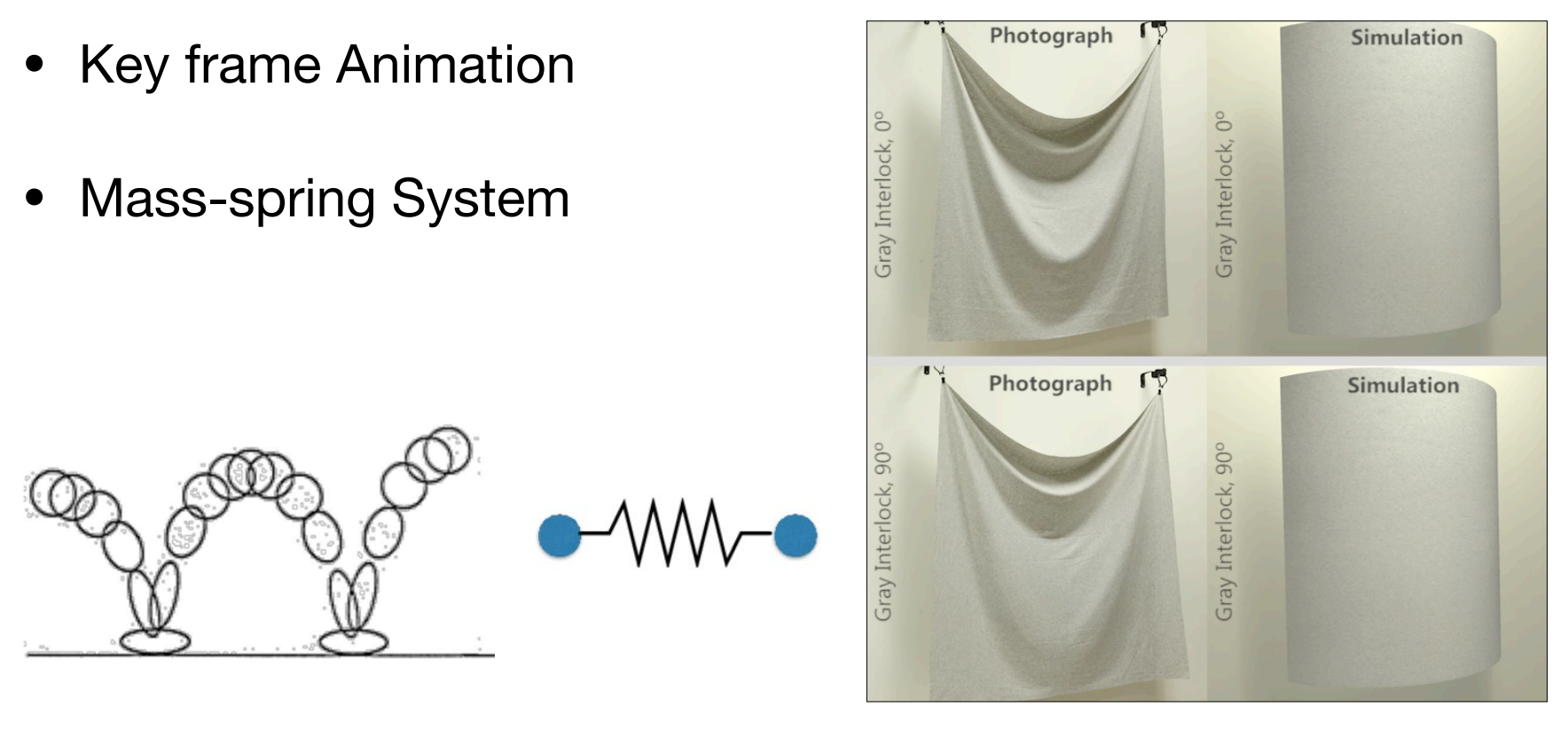
Not about
- not about OpenGL/DirectX/Vulkan
- not about shaders
- not about 3d modeling. suach as mata/blender
- not about cv/deep learning
graph LR
A((MODEL))--"Computer Graphics(Modeling, Simulation)"-->A
B((IMAGE))--"Computer Vision(Image Processing)"-->B
A--"Computer Graphics(Rendering)"-->B
B--"Computer Vision"-->AReferences
Steve Marschner and Peter Shirley, "Fundamentals of Computer Graphics",3rd or later edition.
